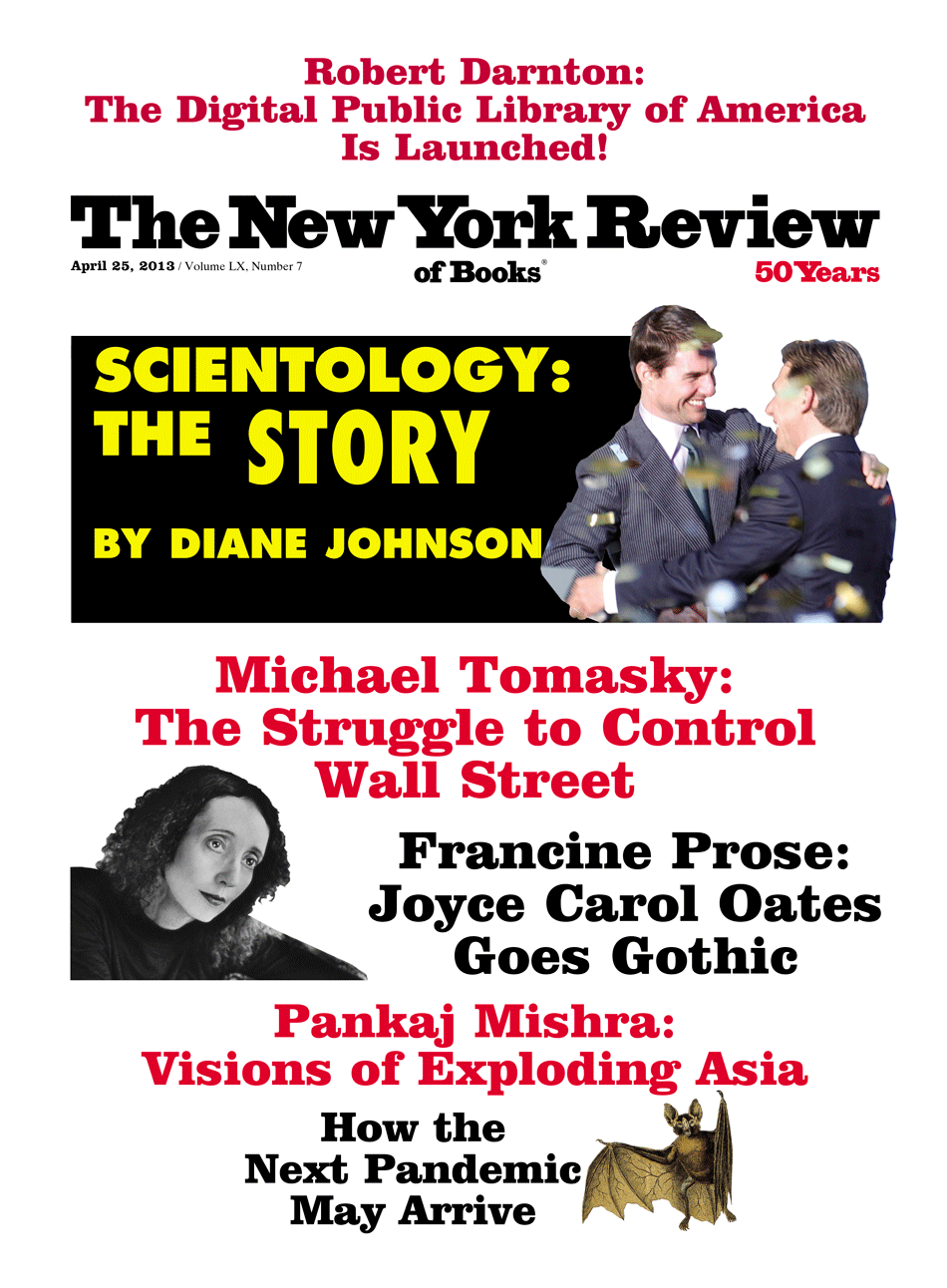In response to:
Catholics and Jews: The Great Change from the March 21, 2013 issue
To the Editors:
I always find the writings of Garry Wills enlightening, scholarly, and humane. But I winced when, speaking of Chaucer’s “Prioress’s Tale,” he refers to “the twisted art of Chaucer” [“Catholics and Jews: The Great Change,” NYR, March 21]. A number of critics have quite plausibly argued that the tale exhibits the bloody-minded anti-Semitism of its speaker, a not-too-clever would-be aristocrat with an excessively sentimental solicitude for mice and other small creatures, a penchant for clean cups and the precise nasal intoning of the liturgy, a highly rhetorical expression of compassion for a murdered Christian child, but no compassion for the slaughtered inhabitants of an entire Jewish ghetto. Chaucer’s art in this tale isn’t twisted, but rather succeeds brilliantly in rendering the twisted affective piety of a certain type of religious sensibility that was becoming more common in late-fourteenth-century England.
Lawrence Besserman
Professor of English, Emeritus
The Hebrew University of Jerusalem


